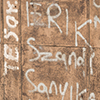Social and friendship networks of roma families living in Budapest’s Magdolna District
DOI:
https://doi.org/10.18030/socio.hu.2020.3.31Keywords:
poverty, urban poverty, poverty and ethnicity, spatial segregation, social exclusion, social network, RomaAbstract
In this study I aim to summarize the main characteristics of the friend- and relationship structure, and the life-organising functions of poor Roma families in the Magdolna district of Budapest. I try to answer the questions whether the segregated areas in my research – segregated streets and apartment blocks – have definable limits in terms of social connections, if they can be defined in a geographical or social sense, or if these relationships have ethnic boundaries. I also intend to figure out the differences in the relationship structure of women and men, and whether rehabilitation attempts offered real opportunity for social dialogue. In terms of methodology, I supplemented my semi-structured interviews with tools for participatory observation and contact and consumption diaries. Based on my findings, the exclusion creates specific economic co-operations and exchange networks, in which, besides kinship, members of a given neighbourhood and permanent participants of income-generating activities are becoming more valuable. In these communities, strong relationships are complemented by functions related to livelihoods and running households.





